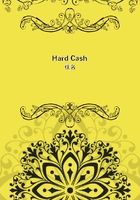
第58章
When this sober state of things had endured some time, there came a year that money was loose, and a speculative fever due in the whirligig of time. Then railways bubbled. New ones were advertised, fifty a month, and all went to a premium. High and low scrambled for the shares, even when the projected line was to run from the town of Nought to the village of Nothing across a goose common. The flame spread, fanned by prospectus and advertisement, two mines of glowing fiction, compared with which the legitimate article is a mere tissue of understatements; princes sat in railway tenders, and clove the air like the birds whose effigies surmount their armorials; our stiffest Peers relaxed into Boards; Bishops warned their clergy against avarice, and buttered Hudson an inch thick for shares; and turned their little aprons into great pockets; men, stainless hitherto, put down their infants, nurses included, as independent subscribers, and bagged the coupons, _capturi tartaros._ Nearly everything that had a name, and, by some immense fortuity, could write it, demanded its part in the new and fathomless source of wealth: a charwoman's two sons were living in a garret on fifteen shillings apiece per week; down went their excellencies' names for L. 37,000 worth of bubbling iron; another shareholder applied imperiously from a house in Grosvenor Square; he had breakfasted on the steps. Once more in Time's whirligig gentlemen and their footmen jostled one another on the Exchange, and a motley crew of peers and printers, vicars and admirals, professors, cooks, costermongers, cotton-spinners, waiters, coachmen, priests, potboys, hankers, braziers, dairymen, mail-guards, barristers, spinsters, butchers, beggars, duchesses, rag-merchants-- in one word, of Nobs and Snobs; fought and scrambled pell mell for the popular paper, and all to get rich in a day.**For the humours of the time see the parliamentary return of Railway Subscribers, published 1846: Francis's British Railway: Evan's Commercial Crisis; and the pamphlets and journals of the day.
Richard Hardie had some money in existing railways, but he declined to invest his hard cash upon hypotheticals. He was repeatedly solicited to be a director, but always declined. Once he was offered a canny bribe of a thousand pounds to let his name go on a provisional committee. He refused with a characteristic remark: "I never buy any merchandise at a fancy price, not even hard cash."Antidote to the universal mania, Barkington had this one wet blanket; an unpopular institution; but far more salutary than a damp sheet especially in time of Bubble.
Nearly all his customers consulted Richard Hardie, and this was the substance of his replies: "The Bubbles of History, including the great one of my youth, were national, as well as individual, follies. It is not so now: the railways, that ruin their allottees and directors, will be pure additions to the national property, and some day remove one barrier more from commerce. The Dutch tulip frenzy went on a petty fancy: the Railway fury goes on a great fact. Our predecessors blew mere soap bubbles; we blow an iron bubble: but here the distinction ends. In 1825the country undertook immediate engagements, to fulfil which a century's income would not have sufficed: today a thousand railway companies are registered, requiring a capital of six hundred million and another thousand projected, to cost another five hundred million. Where is the money to come from? If the world was both cultivated and civilised (instead of neither), and this nation could be sold, with every building, ship, quadruped, jewel, and marketable female in it, it would not fetch the money to make these railways; yet the country undertakes to create them in three years _with its floating capital._ Arithmetic of Bedlam!
The thing cannot last a year without collapsing." Richard Hardie _talked_like this from first to last. But, when he saw that shares invariably mounted; that even those who, for want of interest, had to buy them at a premium, sold them at a profit; when he saw paupers making large fortunes in a few months, by buying into every venture and selling the next week--he itched for his share of the booty, and determined to profit in act by the credulity of mankind, as well as expose it in words. He made use of his large connections to purchase shares, which he took care to part with speedily. He cleared a good deal of money, and that made him hungrier: he went deeper and deeper into what he called Flat-catching, till one day he stood to win thirty thousand pounds at a _coup._But it is dangerous to be a convert, real or false, to Bubble: the game is to be rash at once, and turn prudent at the full tide. When Richard Hardie was up to his chin in these time bargains, came an incident not easy to foresee: the conductors of the _Times,_ either from patriotism or long-sighted policy, punctured the bladder, though they were making thousands weekly by the railway advertisements. The time was so well chosen, and the pin applied, that it was a death-blow: shares declined from that morning, and the inevitable panic was advanced a week or two.
The more credulous speculators held on in hopes of a revival; but Hardie, who knew that the collapse had been merely hastened, saw the gravity of the situation, and sold largely at a heavy loss. But he could not sell all the bad paper he had accumulated for a temporary purpose: the panic came too swiftly and too strong; soon there were no buyers at any price.
The biter was bit: the fox who had said, "This is a trap; I'll lightly come and lightly go," was caught by the light fantastic toe.